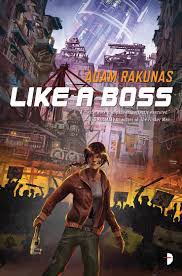A Labor Day proposal: Let's create more blue-collar novelists
It's a well-known fact that America moved its celebration of labor from May 1st, when the rest of the world observes it, to September. The reason why is clear: government leaders were concerned that celebrating labor on May Day would encourage socialism. Because of that shift in date, Labor Day is celebrated as the early end of summer in the US. Americans barely acknowledge workers at all over Labor Day weekend — especially if we’re lucky enough to get the weekend off. (Shout-out to all you booksellers working today. We see you.)
So I wanted to take the day to talk a little bit about labor. Specifically, the labor of writing. Here in the US, we still have an archaic understanding of what “work” is. Creative pursuits like art and writing are often considered hobbies — even if the writer is a professional who makes a living from the writing. Almost every novelist has a story or fifteen about someone at a party who follows up the “what do you do” question with an especially patronizing comment like “so you just sit around and stare out the window all day?”
Writing is labor. Being a novelist is labor. It is work. More, it is vital work. But there are very few “blue-collar” novelists out there, and I believe that is a problem. The publishing industry rewards a few novelists with large paychecks, while the rest — the novelists who used to be referred to as “midlist” — have to teach full-time or find some other way to supplement their income. As a result, bookstore fiction sections are overstuffed with novels about trust fund kids who live in Brooklyn or college professors or independently wealthy people. I believe more people would read novels if the novels resembled their daily lives in some way.
For years, I’ve had a theory. The math here is way too simplistic, but bear with me as I fumble through. I’m offering a thought experiment, not an accounting ledger. Let’s say there’s a sci-fi publisher, and they have a roster of three or four incredibly popular novelists who have signed six or seven-figure book deals. I would like to see a publisher take the money they would traditionally put toward one superstar bestselling writer and instead split it up and dedicate it to a fleet of 20 or so blue-collar sci-fi novelists at salaries of, say, $50,000 per year, plus benefits.
These salaries would mean the publisher gets first pass at everything these salaried writers compose. (If they decline, the author would be welcome to shop it around.) There would be profit participation, so if a novel or a series took off, the author would enjoy some of that success. Rather than spending their valuable time scrambling around as freelancers, those writers could take the security of a weekly paycheck and devote it to writing. I’d be willing to bet they would produce more work, and they would be happier, than writers who have to continually hustle their own work.

I think this investment would pay off for the publishers. Out of those twenty writers, it’s highly likely that at least one would enjoy modest success that would cover a significant sum of the salaries. And the other writers would enjoy the opportunity to hone their craft and build a body of work that could, eventually, pay for itself in the years ahead.
I don’t want to deny the truth that blue-collar fiction exists out there. Adam Rakunas’s Windswept series is about a labor organizer in space, for crying out loud. But I do think that if publishers encouraged more writers to live a secure middle-class life, they would publish more fiction that appealed to more Americans. If we don’t get better about honoring workers — all workers, even the ones in creative fields — with the security to live their lives, Labor Day will truly be meaningless.